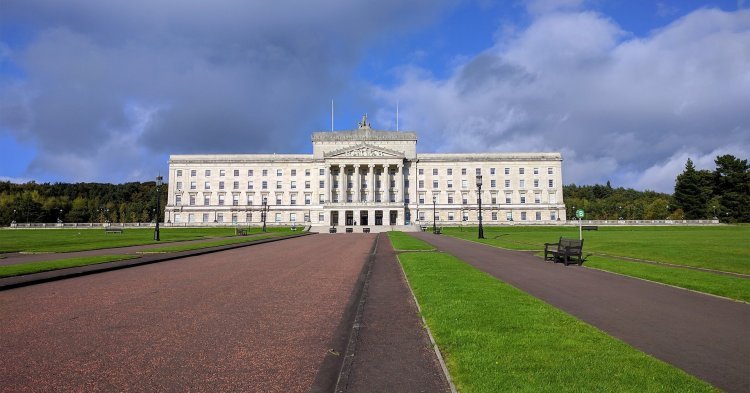On Thursday last week, Northern Irish voters went to the polling booths as part of UK-wide local council elections. The result was historic: the Irish republican party, Sinn Féin (We ourselves in Irish) gained the largest number of seats in the Northern Irish Assembly for the first time in the young country’s history. Michelle O’Neill is now in the running to become the First Minister of Northern Ireland - provided she receives backing from the Democratic Unionist Party (DUP), due to the Assembly’s power-sharing system. O’Neill and Sinn Féin represent momentous change in the country that may even lead to a united Ireland, leaving Northern Ireland’s future relationship with the EU open to development.
Who are Sinn Féin?
Sinn Féin were originally known as the political branch of the Irish Republican Army (IRA), a group considered to be terrorists, who carried out attacks during the conflict that raged across Northern Ireland from the late 1960s to 1990s. During this time, the country was divided between the Unionists, who wanted to remain a part of the United Kingdom, and Irish nationalists, who wanted independence as part of a united Ireland. The culmination of this conflict was the Good Friday Agreement, signed in 1998 by UK Prime Minister Tony Blair and Bertie Ahern, former Taoiseach (Prime Minister) of Ireland. The Agreement consolidated several points in order to maintain peace in the region, such as allowing all Northern Irish citizens to have dual citizenship with Britain, and the establishment of a new, shared-power devolved government in Belfast.
Sinn Féin, as it did in the past, believes in a united Ireland, removing the invisible border completely between North and South, whilst separating themselves completely from the UK. However, despite the success of Sinn Féin, nationalism remains a minority view in the Northern Irish Assembly. The right-wing DUP, who won 25 seats, and the centre Alliance, with 17, both share unionist stances. Regardless, these election results remain a clear symbol of changing views in Northern Ireland.
Relationship with the EU
From almost every Northern Irish perspective, the relationship with the EU has been extremely complicated due to Brexit. The issue of the Northern Irish Protocol has caused political disruption in the nation, with the former First Minister of Northern Ireland, the DUP’s Paul Givan, resigning in protest over it in February. The Protocol aimed to make sure that: there would be no hard border between Northern Ireland and the Republic of Ireland; the integrity of the EU’s single market for goods was secured; and that ‘unfettered access’ to trade between Northern Ireland and the UK could be facilitated, including Northern Irish goods in any UK-external trade agreement.
However, while Northern Ireland benefits from some EU law, it exists in a grey area where some exceptions apply. For example, traders have to prove that their trade compiles with EU law. In some cases, businesses that may usually have traded to both the EU and UK may now have to comply with both sets of different laws. The additional bureaucracy caused by this, and increased costs, has affected businesses and angered many. Additionally, despite the fact that some aspects of EU law apply to Northern Ireland, as it is not a member state it cannot have a say in any of the EU policies that may affect it.
While in the past Sinn Féin has been a eurosceptic party, they now take an officially pro-EU membership stance, and have frequently argued that Northern Ireland’s removal from the EU is an undemocratic result of Westminster rule. However, despite their majority, Sinn Féin may run into opposition on the issue of the EU with the DUP, while the third largest party Alliance, remain unionist to the UK but pushed for a reconsideration of Brexit before it was final. The DUP has refused to share power with Sinn Féin, meaning that a government cannot be formed, unless agreements can be reached on the Protocol. According to Sky News, Ireland’s Europe minister Thomas Byrne has called on the UK to ‘engage in a renewed way with the European Union’.
If Sinn Féin were to push for a referendum that reunited Northern and the Republic of Ireland, it would mean Northern Ireland would potentially be in a position to re-enter the EU, after being pulled out of it by Brexit. The official border between the EU and the UK would change yet again, and the effects of this on trade, relationships with the EU, and peace in Northern Island, would have to be carefully considered in any negotiations.
The future?
For many, the success of Sinn Féin could mean a referendum on the unification of Ireland - coming just 101 years after the birth of Northern Ireland under the partition. If it were to be successful, Northern Ireland would cease to exist and any existing ties with the UK would be cut. The relationship between the UK and the EU would have to be reimagined as the border would once again move.
Alternatively, if Northern Ireland remains part of the UK, the UK and the EU will have to continue negotiating the terms of the Protocol in order to maintain positive outcomes and relations with Northern Ireland. In either case, relationships with the UK have the potential to become strained, and run the risk of losing Northern Ireland’s place in the UK altogether. Whatever happens, as O’Neill herself says, this election indeed represents ‘a significant moment of change’ for Northern Ireland.


Follow the comments: |
|
